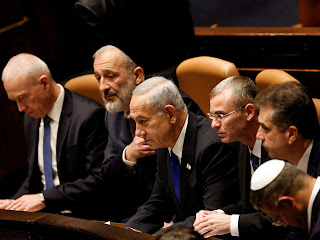“The world where women shine”
Next 3 Dec, 2022 it will kick start and be hosted in Japan the “World Assembly for Women” (WAW!), that’s the Japanese initiative for promoting gender equality and women’s empowerment and for mainstreaming gender into a new form of capitalism, pursuing the special focus to realize “a society where women shine”.
This conference will be held for the fifth year since the
foundation of this cycle of events, concurrently with the W20, one of the
engagement group of G20. Are invited to take part in it Ms Malala Yousafzar,
the Nobel Peace Prize laureate for 2014 that is highlightening the importance
of the education for girls, advocating that “one book and one pen can change
the world”.Moreover it will join the talks the female foreign ministers and
youth representatives other than Michelle Bachelet, UN High Commissioner for
Human Rights. This initiative plunges its roots in the framework of the CEDAW,
the Convention on the Elimination of All Forms of Discrimination against Women,
dated 1979, and the UNSC resolution 1325 aiming to implement it through the Japanese
National Action Plan on Women, Peace and Security in the achievement of the UN goals, by
drafting, monitoring and evaluating brand new initiatives..
A special attention during these meetings is planned
to be given to the LGBT matters, including an insight on the “diversity” issues,
making room for lively large platforms of discussion on SDG5 topics. [1]
The government of Japan stresses that it will keep on providing
support to the education and economic empowerment for women and girls in the
society at large. Working through international agencies, Japan supports women
in the vulnerable situations such as victims of SGBV.
In the words of Sima Bahous, UN Under-Secretary
General Executive Director, UN Women[2],
UN are honoured to reinforce their partnership with Japan and redouble their
efforts and live up their shared commitment at this most crucial times.
UN women
(United Nations Entity for Gender Equality and the Empowerment of Women) has
three main roles:
·
To support
inter-governmental bodies, such as the Commission on the Status of Women, in
their formulation of policies, global standards and norms.
·
To help
Member States to implement these standards, providing suitable technical and
financial support to those countries that request it, and forging effective
partnerships with civil society.
·
To lead and
coordinate the UN system’s work on gender equality as well as promote
accountability, including through regular monitoring of system-wide progress.
UN Women’s priority areas are: (1) Leadership and political participation,
(2) Economic empowerment, (3) Ending violence against women, (4) Peace and
security, (5) Humanitarian action, (6) Governance and national planning, (7)
Sustainable Development Goals (SDGs), and (8) HIV/AIDS.
In 2012, United Kingdom, one of the most influential countries in the
revendications of women rights, launched “Preventing Sexual Violence Initiative”
(PSVI) to raise awareness and put an end to the violation of women’s human
rights in conflicts. Urging the necessity to end impunity for sexual violence
in conflict and to boost the efforts of international community, the“Declaration
on Preventing Sexual Violence in Conflict ” was adopted at the G8 Foreign Minister’s meeting in April 2013. Also,
United Kingdom created “Champion’s Network” with cooperating countries and
released “A Declaration of Commitment to end Sexual Violence in
Conflict” with 114 countries. Japan
strongly support PSVI and has funded to the projects conducted by the Office of
the Special Representative of the Secretary-General on Sexual Violence in
Conflict.
Japanese Foreign Minister Fumio Kishida attended and delivered speech at
the High-level Ministerial Event on Women’s Economic Empowerment for Peacebuilding
held at UN building in September 2013. In the event, representatives from about
70 countries participated and a political declaration which mentions about the
importance of women’s roles in the peacebuilding process and women’s
empowerment was released. By synthetizing, Japan proposes
- A high-level
Ministerial Event on Women’s Economic Empowerment for Peacebuilding
- A declaration:
Women’s Economic Empowerment for Peacebuilding
- An
inhering statement by Foreign Minister Fumio Kishida
In the main intentions of the UN, in facts, promoting the active role of
women in STEM field contributes to achieve economic growth and to shorten
gender disparity, involving creators, entrepreneurs, innovators and leaders in
the field of science, technology, engineering and mathematics. Although globally, girls’ enrolment in
school has gone up within recent decades, in many settings, socio-economic and
cultural obstacles such as prioritizing boys’ education, inadequate school
sanitation facilities, and school-related gender-based violence prevent female
learners from completing or benefiting fully from a high quality STEM
education.
Furthermore, the global digital divide disproportionately prevents women and
girls from accessing online STEM information and opportunities.
For too long, gender biases and
stereotypes have steered women and girls away from science-related fields. Only
about 30 per cent of all female students select
STEM-related fields in higher education and even fewer pursue Doctoral degrees or hold leadership positions.
All this suggests, data in hand, how
the society at large is still dominated by a prevailing men role presence and
how much a sensitive contribution in raising awareness, not only by ONG, and
propelling institutional interventions at all levels, from Member States to
local partners, would be pivotal and unavoidable by concrete actions, investing
budgets and involving key actors. By this initiative, Japan is demonstrating
not to want to be a remote island in the matter of a possible progress and
empowerment for women and girls, but acting as a springboard, a re-launch
point, stimulating and encompassing talks and tangible resources by a proactive
international commitment, in order to reach a realistic equality of gender in
the mind and the heart of people, by emboldening the target of the realization of
a peaceful and stable society and by guaranteeing a better future for the
Planet.





Comments
Post a Comment